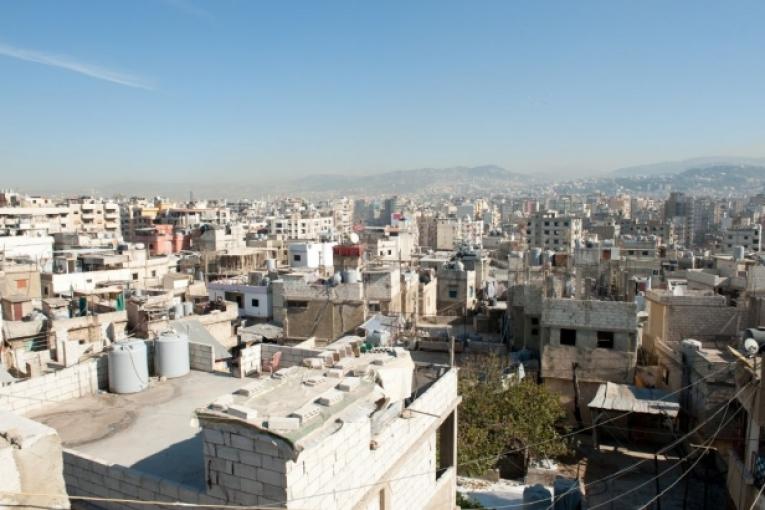Going to Tel Aviv is an absolute joy for any Judeophile. In the late summer of 2022, your correspondent was fortunate enough to go back to Tel Aviv, the ‘capital of the Mediterranean cool’, which was as magnificent as ever. Star of David flags, hoisted along the beachfront, flutter in the late afternoon breeze. Bikini and shorts-clad Tel Avivi millennials, with impeccably bronzed bodies, crowd the bars alongside Hilton beach. From the nearby speakers, female vocals softly proclaim to the sounds of deep house: “Straight to the open sea, I am diving to the memories you gave me; I could never leave, I could never leave, Tel Aviv….” There were practically no traces left of the stringent measures associated with halting the COVID-19 spread.
The COVID-19 response in the Eastern Mediterranean
The rapid rollout of a COVID-19 vaccination programme, enabled by a solid health care system, helped Israel to bring things back to normal, fairly quickly. Importantly, this was driven by the determination to never become vulnerable again (no matter how big or small the enemy is, how visible or invisible…)
During the same trip, your correspondent and his friend also decided to pop across the border and visit Amman, which, while anthropologically interesting, is the complete opposite of Tel Aviv. Unlike the simplicity of the Bauhaus movement and the original urban planning, which granted Tel Aviv a place in the UNESCO World Heritage list, in Amman, one is faced with urban chaos: sprawling streets, confusing alleyways and overcrowded souks. Interestingly, one also noticed that some people, particularly in busier places, still wore face masks (that ubiquitous symbol of the COVID-19 pandemic). The face masks were noticeable on the streets of Amman even though by the summer of 2022, about half of the population in Jordan had received at least one dose of the COVID-19 vaccine.
The advice from the World Health Organization (WHO) at the time was clear: to stop the spread of COVID-19, a combination of vaccines and public health and social measures (PHSM) should be applied. Thus, as the vaccination coverage in the wider Middle East and North Africa region (as defined by UNCIEF) and Eastern Mediterranean (as defined by WHO) has been increasing, researchers were interested in what has happened to the so-called public health and social measures (PHSM) across the region.
to stop the spread of COVID-19, a combination of vaccines and public health and social measures should be applied.
The study: surveying the link between vaccination status and PHSM adherence
The link between self-reported vaccination status and PHSM adherence was the core research question that Zlatko Nikoloski and his colleagues from UNICEF and WHO regional offices tackled in a research paper recently published by the Bulletin of the WHO. The study relied on a cross-sectional survey of knowledge, attitudes, and practices; via computer-assisted telephone interviews; conducted with 14,000 individuals across the 23 countries in the region. The survey was conducted in two waves: first in June and July 2021 and then in October and November 2021.
To account for differences in vaccine availability across different countries, the authors also conducted a sub-regional analysis on three groups of countries: high-income, middle-income, and low-income countries. The questionnaire addressed the following:
- Individual characteristics;
- Behavioural barriers, perceptions and beliefs about vaccines and COVID-19; and
- Community factors.
Questions were derived from the global question bank provided by the Risk Communication and Community Engagement (RCCE) Collective Service.
PHSM variables were derived from questions about the frequency of practising the following measures over the previous week:
- Wearing a mask in public;
- Keeping a physical distance of at least 1 metre from people in public; and
- Washing hands with water and soap for 20 seconds.
The self-reported vaccination status was based on the question of whether the respondent had received at least one dose of COVID-19 vaccine. The assessment also accounted for socio-economic and demographic variables, previous infection with COVID-19, and knowledge about COVID-19 transmission. The PHSM variables and variable capturing vaccination status were then analysed.
Findings
1. Vaccinated respondents were more likely to adhere to PHSM
The Health Belief Model and social identity theory suggest that people who practise one health behaviour, such as vaccination, are more likely to practise others, such as PHSM, in relation to the containment of COVID-19. It may also be the case that, upon vaccination, vaccinated individuals are reminded to continue their practice of mask-wearing, physical distancing, and handwashing.
2. PHSM adherence was not influenced by income level
The analysis by the level of economic development suggested that this link is robust across both low and middle-income countries. However, in high-income countries, where vaccination coverage is almost universal, the vaccination status/PHSM nexus was statistically insignificant (see Figure below).

3. There was a slight reduction in PHSM over time
The robust association between vaccination status and PHSM adherence remained stable over time, even though self-reported vaccination coverage tripled in the course of five months. This could indicate that pandemic fatigue may impact PHSM adherence.
Conclusion: vaccine status and public health complacency
The findings indicate that in the wider EM/MENA region, there is no need for concern that the roll-out of COVID-19 vaccination programmes results in people being more likely to take PHSM risks. Nevertheless, reinforcement of PHSM is very important to compliance, and as government restrictions are lifted, PHSM is expected to drop considerably. In addition, there is no place for complacency regarding the rollout of vaccines, particularly in low-income countries in the region.
This blog summarises the key findings of the study on the link between coronavirus disease 2019 (COVID-19) vaccination status and adherence to public health and social
measures in Members of the Eastern Mediterranean Region and Algeria. Read the full article published Bulletin of the World Health Organization here.





